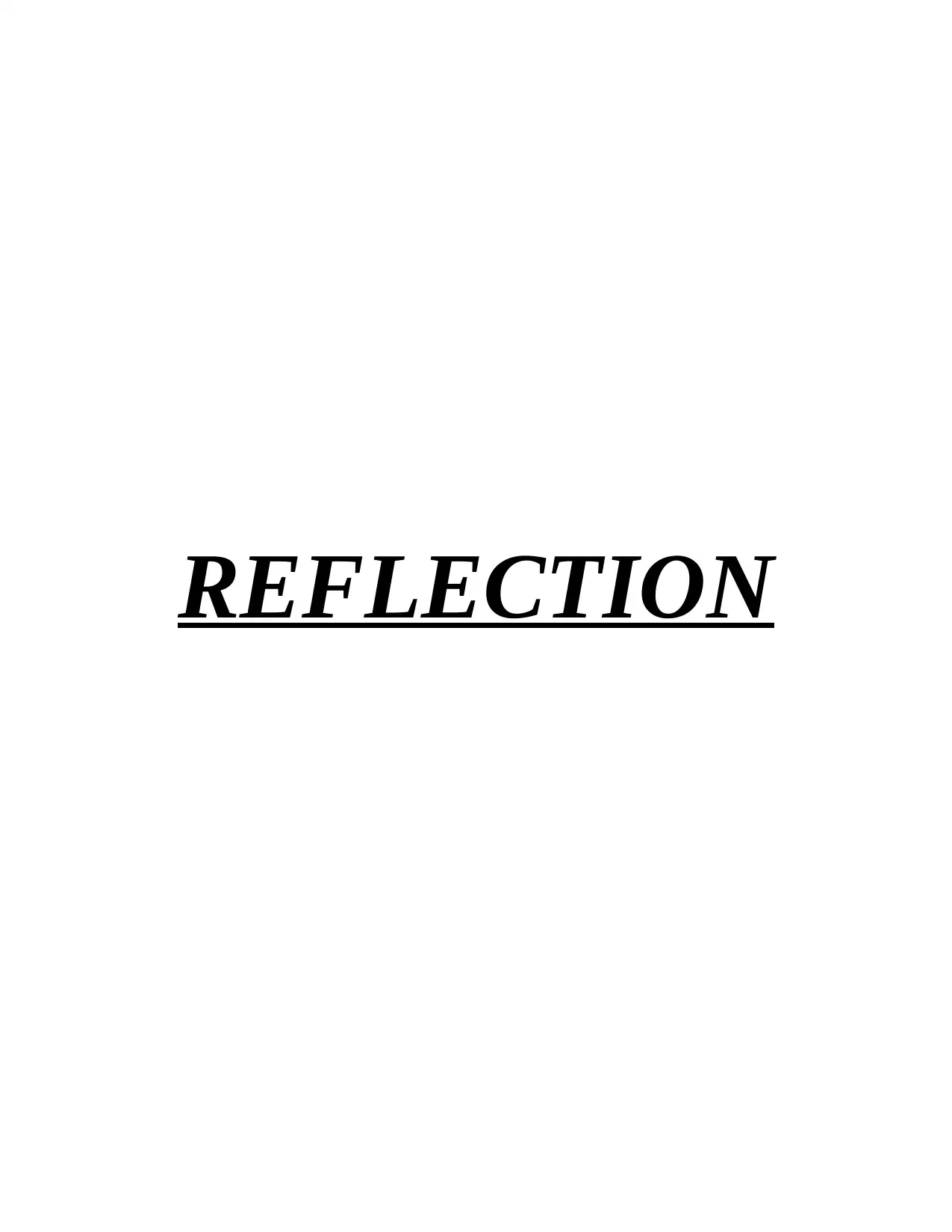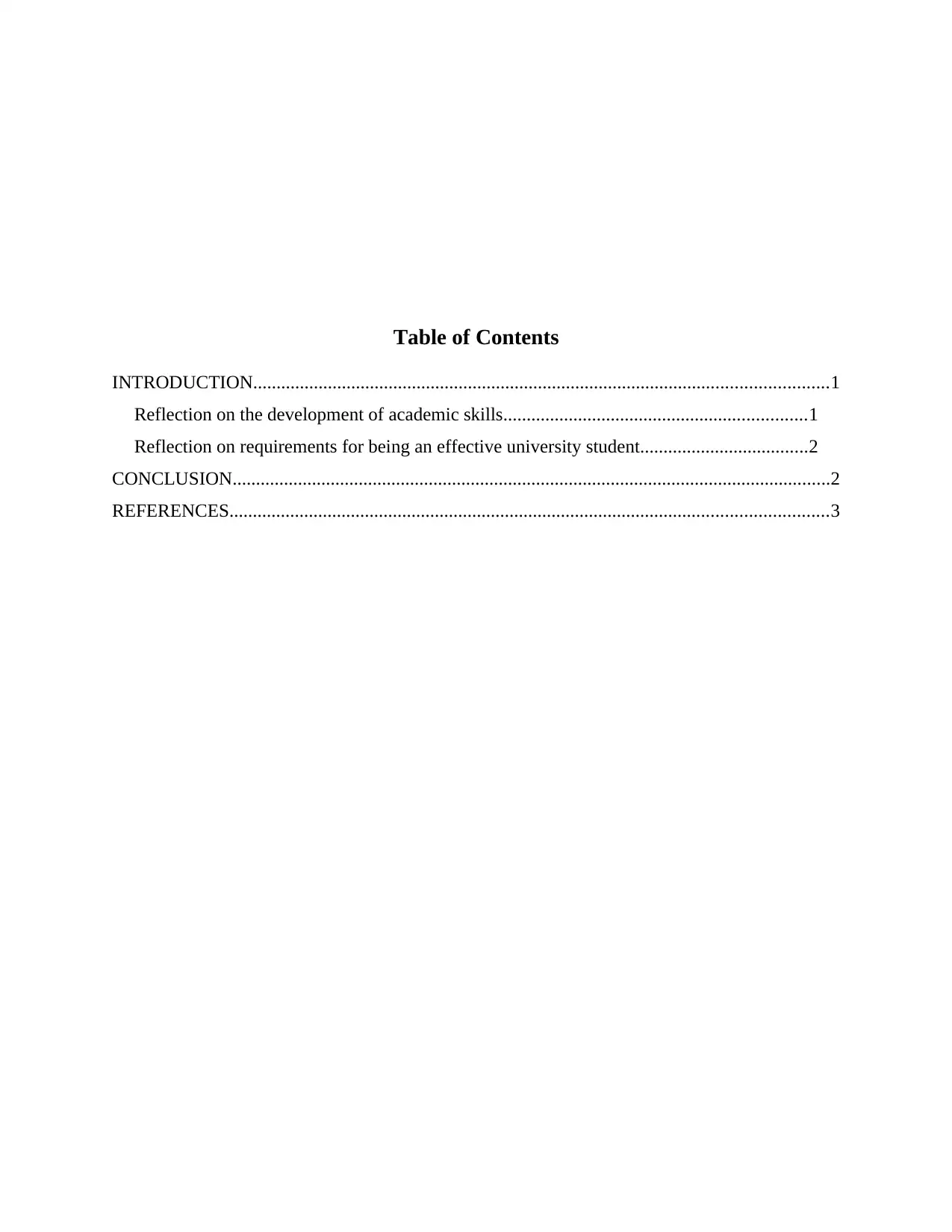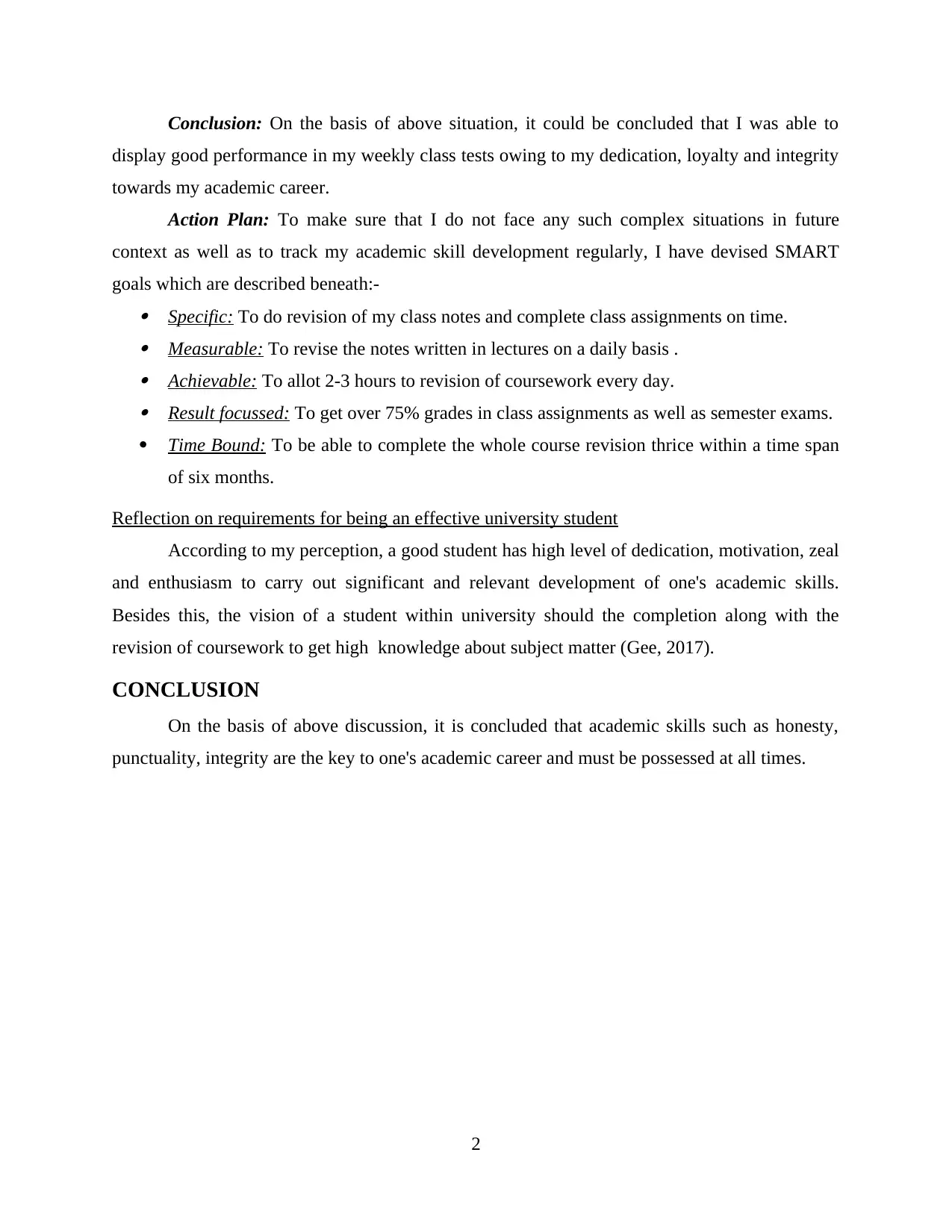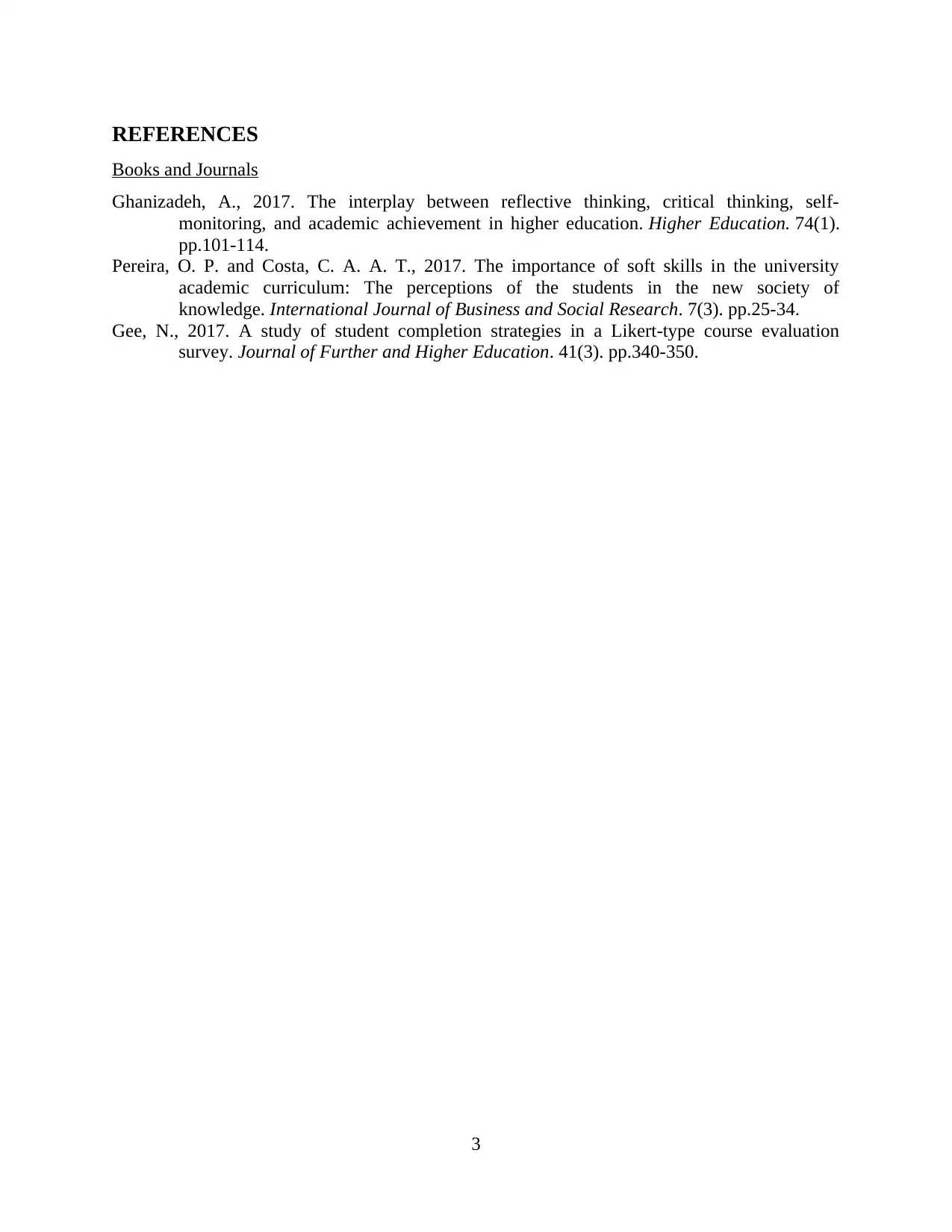Reflection on Academic Skills Development: First Two Semesters
VerifiedAdded on 2020/10/22
|5
|807
|118
Journal and Reflective Writing
AI Summary
This reflective paper examines the development of academic skills during the first two semesters of university, utilizing Gibb's reflective cycle model and SMART goals. The paper details the student's experiences, including challenges with accents and strategies for overcoming them, such as borrowing notes and seeking peer assistance. It evaluates the student's dedication, motivation, and performance in class tests, highlighting the importance of analytical and observational skills. The conclusion emphasizes the significance of academic skills like honesty and integrity. Furthermore, the paper outlines a specific action plan for continued improvement, focusing on revising notes, completing assignments on time, and achieving high grades. The paper also discusses the requirements for being an effective university student, emphasizing dedication, motivation, and a focus on coursework completion and revision. The paper includes a list of relevant references to support the reflection.
1 out of 5












![[object Object]](/_next/static/media/star-bottom.7253800d.svg)